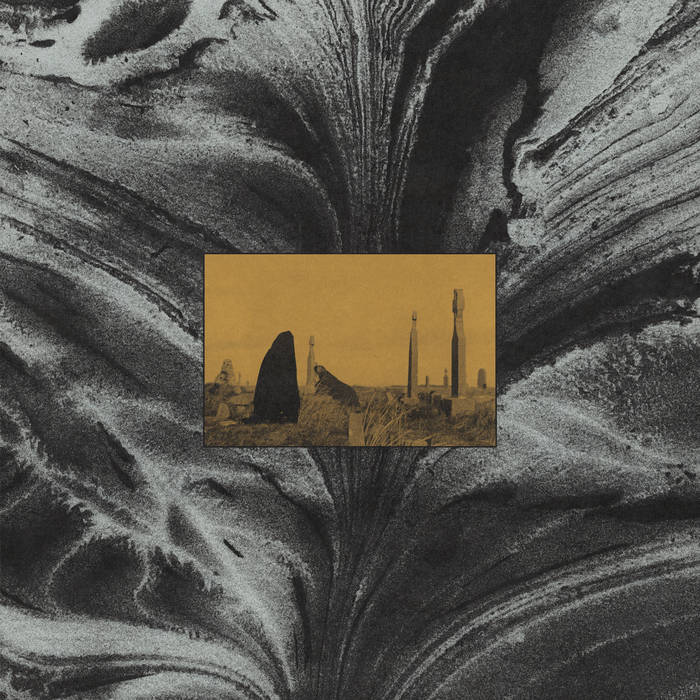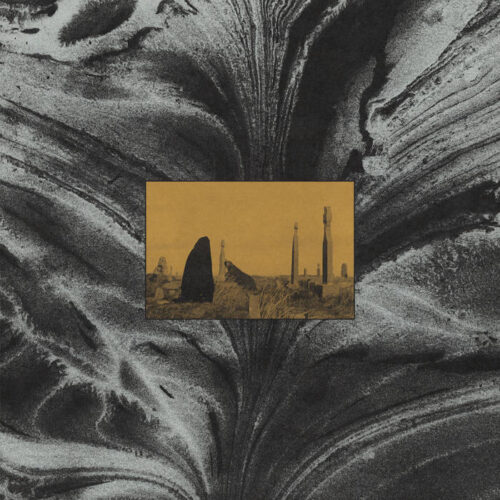This collaboration, the name of which is Irish for secret, mystery, or love, depending on context, is going to take the listener some time to digest, but very little time to like. Rún are made up of Tara Baoth Mooney, a vocalist and Henson vocal artist and film-maker, sometime Nurse With Wound collaborator Diarmuid MacDiamarda, and drummer, engineer and sound designer Rian Trench. The three artists here bring such a dense collision of influences to the table that the twists of the music can feel disorientating at first, but there is such an aesthetic cohesion here that actually, sludge metal, free improv, krautrock, sacred music, electronica, and folk (amongst a bunch of other things) form a physically invigorating whole. Opening track ‘Paidir Poball’ begins with a gentle psych-folk lullaby, with Mooney’s extraordinary tremulous voice spreading out over a sinister scraping noise, before doom distortion, quasi-pagan chanting, reverberant screams, synths, and heavy drums all arrive like a flood. This is bloody, violent, nasty, and, frankly, ace.
What follows is a surprising tangent into a kind of raw trip-hop in ‘You Death My Body’, though again Rún are playing with horror, not just as a trope, but as a worldly experience. Sad to say that it feels all too relevant at this point in time. Things are grim, and the band take this on unflinchingly. The eight minutes of ‘Terror Moon’ is a pounding, relentless opus that provides us with “the unblinking eye of a dead horse” and the uncanny decay of Palestinian oranges in the settled groves of Jaffa. The track has brutality but is never overly dense or oppressive. There is space and subtlety here, and a beautifully crafted sense of structure and development. ‘Such is the Kingdom’ is all processed vocal, buzzing flies, whispers, and a Mark Stewart style gnarly bass riff. Echoes and strange dissonance ripple through it, as mechanised noise and natural sounds of dirt and decay fight it out towards an uneasy balance.
‘Strike It’ has perhaps the most explicit meaning, being a strident and appalled response to the Tuam baby scandal, one of Catholicism’s many shocking controversies. This is not a comfortable listen, and the sound, lyric and production force harrowing attention on the sheer scale and hideousness of what happened at the Bon Secours home. I’m not quite sure why yet, but there is something about the slightly bending pitch in the bass here that makes it all the more upsetting. Again, the cleverness in this music is abundantly clear.
Album closer ‘Caoineadh (keening)’ brings us back towards traditional music, with fiddle, and a melody that would work beautifully as Sean-nós. But as it is, delivered over a simple bass line and droning strings with a vaguely dub-like sensibility, it’s a glorious sunset on the record. As it develops though, it somehow cleans up into something more like Mark Hollis or the quieter moments of earlier post-rock before degrading altogether into a fuzzy event horizon and closure.
This is a collection of music to be lived with and thought about. As late-capitalism and the wellness industry erode our beings to apolitical, spiritless husks, we might look back. Back before the church, before money and media, to something older and stranger. A spirituality more earthly. Trees, rock, death, the sun. Rún seem to have found a way to mine this sensibility while remaining politically astute and conceptually uncompromising. Heavy, feral, and beautiful.



